Boating this summer? It's important to take precautions—bring these safety items
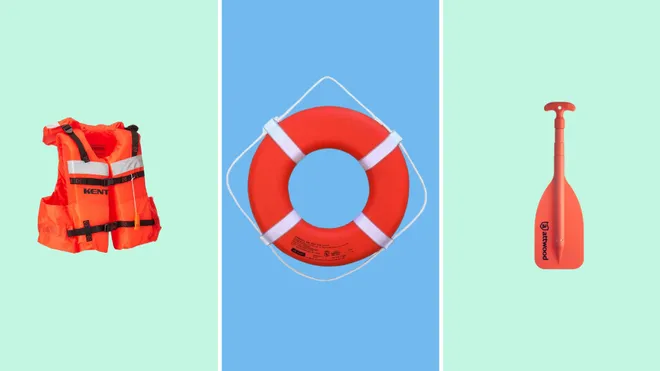
— Recommendations are independently chosen by Reviewed’s editors. Purchases you make through the links below may earn us and our publishing partners a commission.
There are few summer activities as cherished as enjoying time the water, whether it be on a lake, ocean, or river. For some, this includes hitting the waves on a boat. While boating is fun, it also can pose a danger if you're not prepared. In 2022, the Coast Guard counted 4,040 boating accidents, resulting in 636 deaths, 2,222 injuries, and $63 million in damages. The types of boats with the most reported accidents were open motorboats at 47%, kayaks at 14%, and pontoons at 9%. One of the more recent high-profile boating deaths involved former President Barack Obama's personal chef, who drowned while paddleboarding.
That said, boating has been growing safer every year. In 2020, the fatality rate per 10,000 registered vehicles was 6.5. This number dropped to 5.5 in 2021 and to 5.4 in 2022. To ensure your own safety on the water, you'll need to use common sense, follow local boating laws,and make sure that you're equipped with essential safety gear such as lifejackets. Here's everything you need to stay safe while boating this summer.
Make smart choices without hours of googling. Subscribe to The Checklist newsletter for expert product advice and recommendations.
A lifejacket
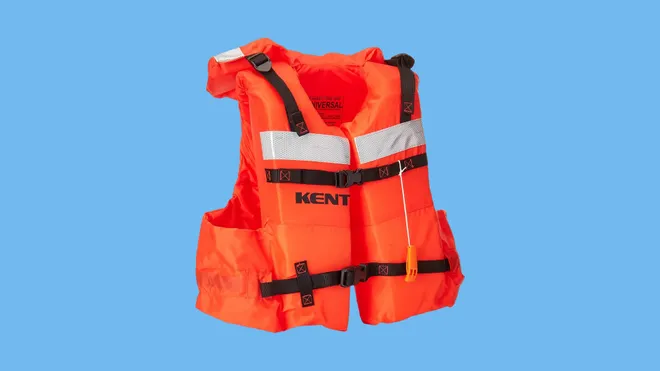
A life jacket is the last defense between you and the great unknown beneath the surface of the water. It's a necessary safety tool for anyone on the water. Even seasoned swimmers can benefit from wearing a life jacket, as it helps them stay afloat if they are unable to swim for some reason. The United States Coast Guard (USCG) has an excellent primer on life jackets and vests. As type I jackets offer the greatest amount of buoyancy, we recommend going with those, but be sure to read the USCG guide to see which life jacket is right for you and everyone else aboard your vessel.
$55 on AmazonA lifebuoy
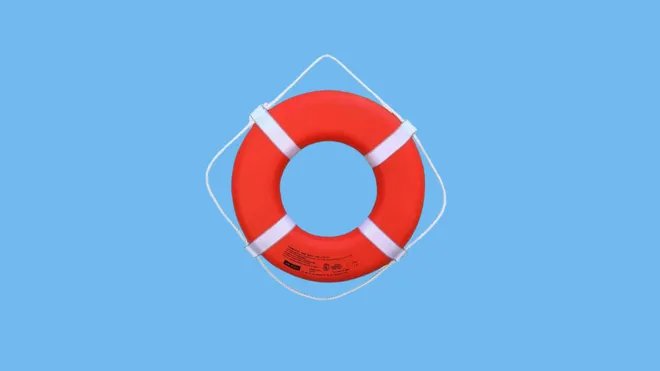
The lifebuoy is another piece of safety gear you'll want handy. It's important to have because it can save someone who's fallen into the water without a life vest , as well as pull someone close to your boat regardless of whether they have a vest or not. This USCG-approved buoy from Walmart resists deterioration, mildew, and rot, meaning that it will last you a long time no matter how often it's used. It's soft and comfortable to hold while being sturdy enough to support someone in need.
$84 from WalmartA visual signal
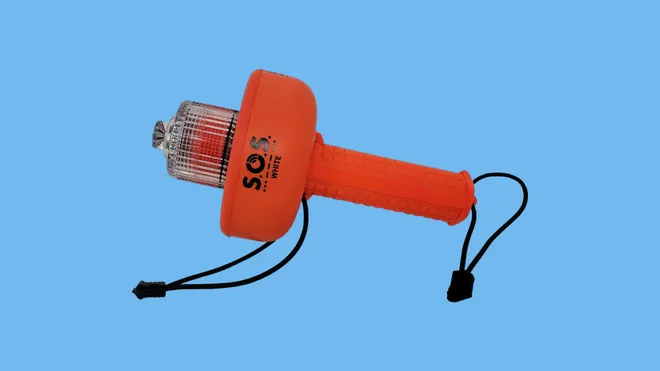
To alert others of your boat's presence in the event of an emergency, you'll need some sort of a . This can range from something low-effort like raising a flag (like this orange flag you can buy on Amazon) to a less subtle method like firing a flare gun. If you're looking for something between the two extremes, try out this distress signal kit. It requires less finesse than a flare gun (and creates less potential for injury) while retaining its effectiveness. It claims to be visible up to 10 nautical miles and meet all of the Coast Guard's visibility requirements.
$90 from AmazonA horn
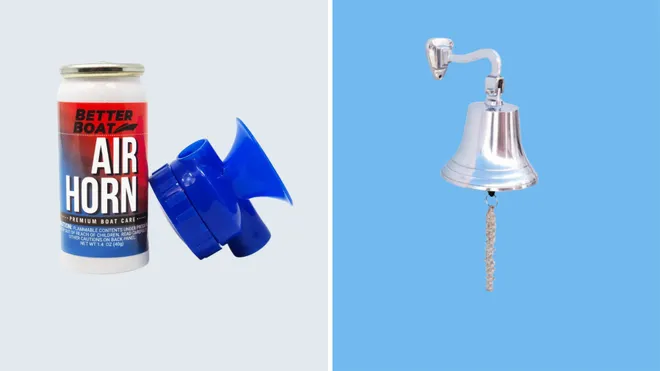
Horns and other audio signals are a vital safety component of boats, as they can attract help if boaters are in danger. They're particularly important when visibility is low, otherwise a boat could risk being completely undetected. If your boat doesn't already have a horn, we recommend using an airhorn such as this one sold by the Better Boat Store with over 5,000 reviews on Amazon. Buyers (who seem to use them for a variety of noise-related tasks from chasing birds to coyotes) love the horn because it is very loud.
$15 from AmazonThe boat safety checklist also recommends using a bell of at least 7.87 inches in diameter during times of limited visibility. Boats larger than 39.4 feet are required to have both a bell and a horn.
$44 from AmazonA first aid kit
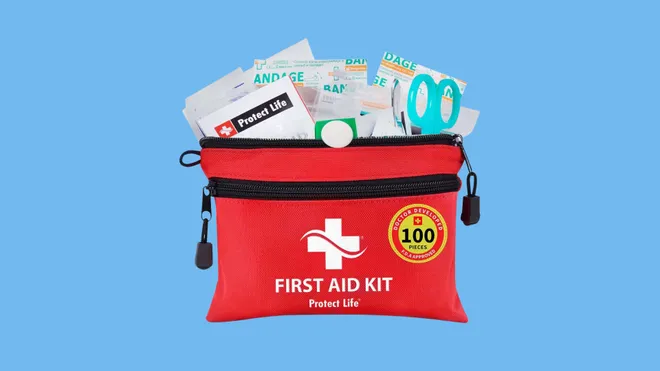
It's good practice to prepare for emergencies by having a first aid kit on hand. This is especially important when boating, as your excursion may take you far from an emergency room or other medical assistance. Keeping a first aid kit can mitigate mishaps and prevent them from becoming disasters. When it comes to first aid kits, it's hard to do better than Protect Life’s 100-Piece First Aid Kit. This kit doesn't sacrifice versatility for portability; it comes with all the essentials while still being lightweight and small.
$15 from AmazonA VHF radio
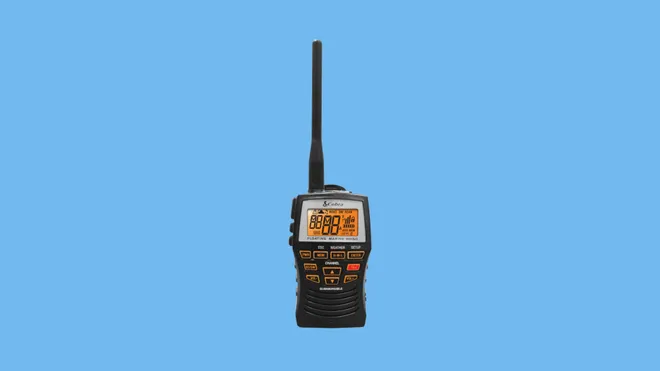
Having a communication device such as a very high frequency (VHF) radio is another way to give yourself peace of mind while on the waters. Knowing how to effectively use this radio will ensure that you can contact help if trouble arises. While a VHF radio can be installed directly onto your boat, we recommend using a handheld, battery-powered VHF radio, as it can be used even if your boat's battery is dead.
$80 from Bass Pro ShopsA GPS
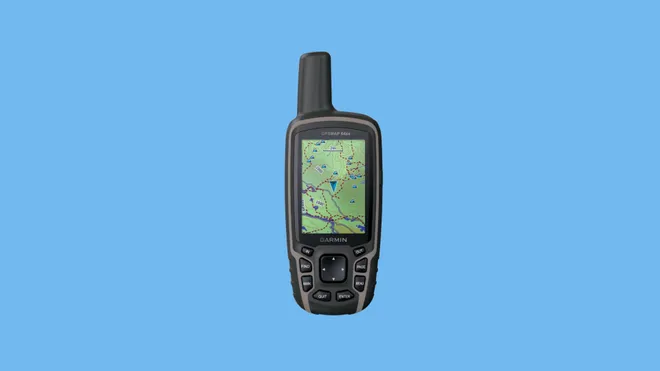
Calling for help won't do you much good if you're in open water and have no idea where you are. Fortunately, a GPS will alleviate this issue. Garmin is one of the most prominent navigation device brands and its GPSMAP 64sx is one of the more budget-friendly options. While some users describe the device as having a learning curve, it comes with many features including the ability to load maps downloaded from the internet.
$350 from Bass Pro ShopsA fire extinguisher
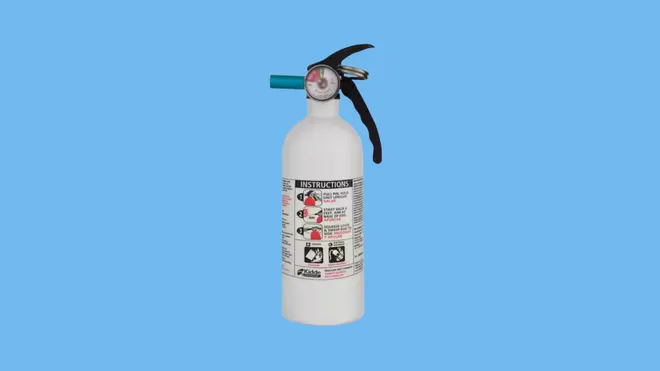
Dealing with a fire in the middle of a body of water is bad news, as the flames cannot be escaped as easily as they could on land. For this reason, experts recommend keeping a fire extinguisher on your boat. Fire extinguishers are classified based on the type of fire they’re designed to put out (A, B, or C; most marine fire extinguishers are rated B or C) and capacity of material they expel, as indicated by a number. The greater the number, the greater the extinguisher’s capacity. One B1 fire extinguisher will suffice for smaller boats, but bigger boats will require either two B1 extinguishers or one B2 extinguisher. Kidde is a trusted fire extinguisher brand and having even one fire extinguisher available will put you in a better position if an accident occurs. As they say, it’s better to be safe than sorry.
$22 from Home DepotA jump box
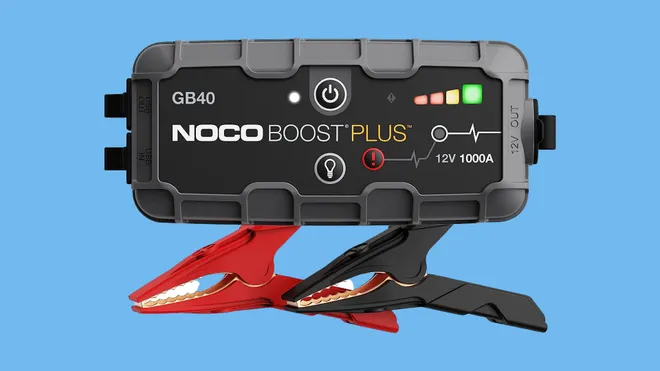
A jump box isn't just for cars—boats also have batteries, and they're liable to go dead at the most inopportune times. To ensure that you're not stranded when this happens, professionals recommend keeping a jumper on hand. NOCO sells the most popular jump starter on Amazon, with over 71,000 five-star reviews praising its power and compactness.
$100 from AmazonA paddle
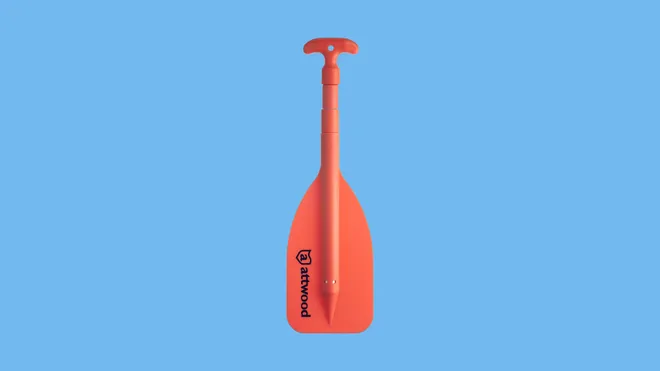
You don't want to be up the creek without a paddle—literally. Whether you're using a rowboat or motorboat, keeping an oar on deck will ensure that you have a way to move if the engine fails. Amazon's best-selling emergency paddle has over 6,000 five-star reviews, with many buyers praising its sturdiness.
$20 from AmazonA pocket knife
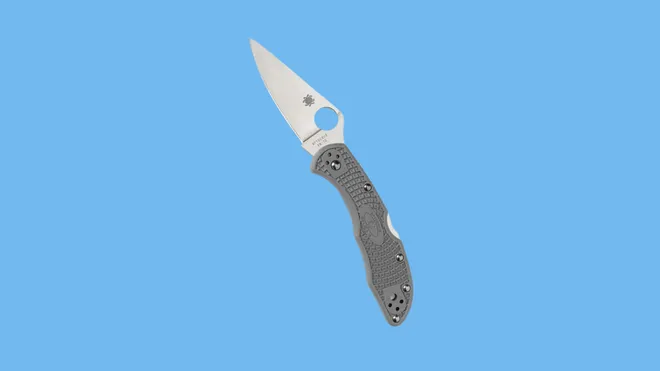
Various ropes, nets, and bags can become entangled over your propeller, making it difficult or even impossible for your boat to move. Untangling a bundle of chords is hard enough on dry land; it's a nightmare to do underwater. Instead, it's recommended that you cut the threads using a knife. Our favorite pocket knife is the Spyderco Delica4. Made with durable steel, this blade is easy to use, which is vital when you need to quickly cut a tangle of threads underwater. Made with durable steel, this blade is easy to use, which is vital when you need to quickly cut a tangle of threads underwater.
$82 from AmazonA snorkel mask
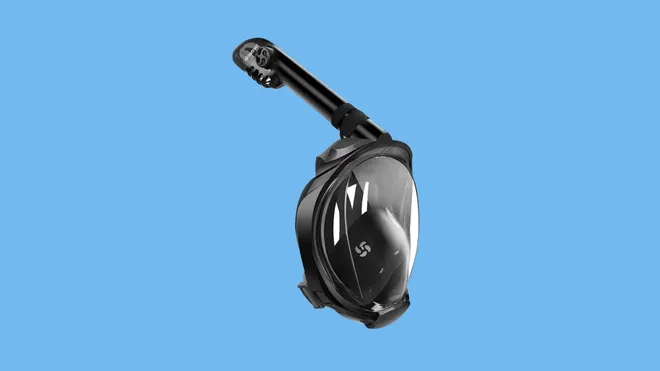
If you need to inspect the propeller or another submerged part of the boat, it's recommended that you use a snorkeling mask. This ensures that you have time to slowly and carefully inspect the area instead of rushing due to a lack of air, which can make you prone to making mistakes like hitting your head or moving carelessly around the propeller. When dealing with propellers, always ensure that the boat is turned off and will remain off for as long as you're near them. Greatever's G2 Full Face Snorkel Mask has over 8,600 five-star reviews because it's comfortable and secure.
$36 from AmazonA throw line
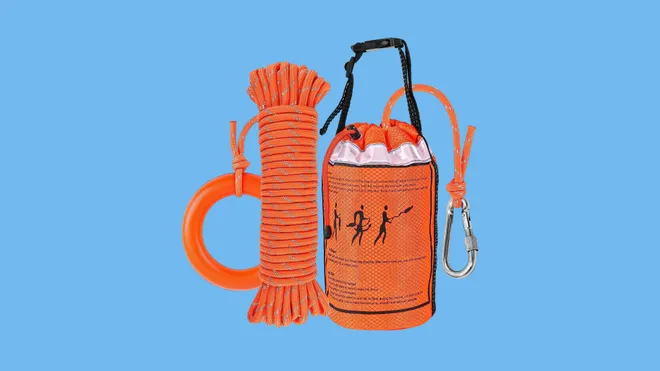
A throw line is another essential piece of boating safety. It has a simular use to that of a buoy in that you'll be able to throw it overboard to pull someone back onto your boat. The NTR Store's throw line is available in lengths of 50, 7,0 and 98 feet. It's also sturdy and has reflective tape so that it's easily visible at night.
$24 from AmazonA floating keychain
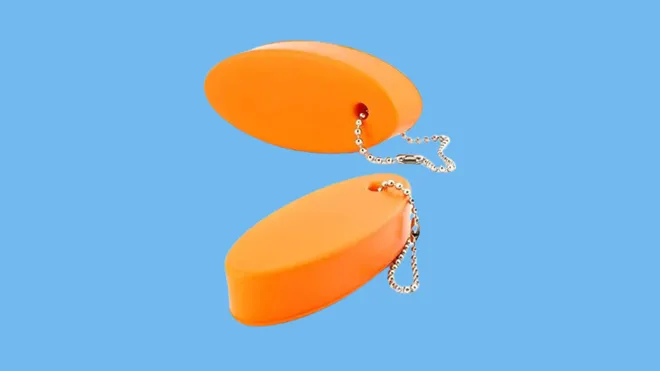
There are few worse places to misplace your keys than at the bottom of a lake or, ehem, the deep blue sea. To prevent stranding yourself on your boat far from land, we recommend attaching your boat keys to a floating key chain such as this one sold by Cornucopia Brands. Buyers appreciate that the chain is light, making it easy to maneuver in and out of your pocket. Many also love the bright color, which makes it easy to see in the water.
$10 from AmazonThe product experts at Reviewed have all your shopping needs covered. Follow Reviewed on Facebook, Twitter, Instagram, TikTok or Flipboard for the latest deals, product reviews and more.
Prices were accurate at the time this article was published but may change over time.
Disclaimer: The copyright of this article belongs to the original author. Reposting this article is solely for the purpose of information dissemination and does not constitute any investment advice. If there is any infringement, please contact us immediately. We will make corrections or deletions as necessary. Thank you.







